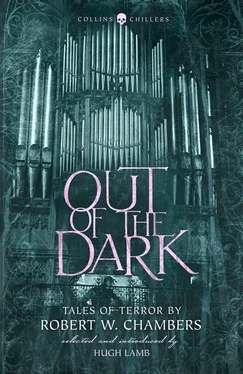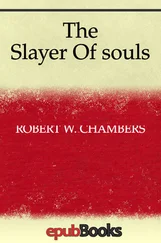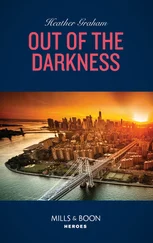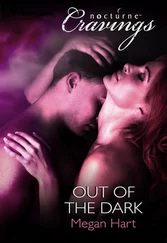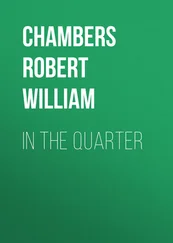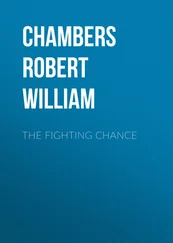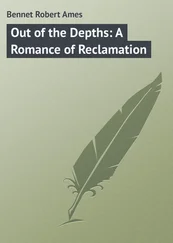The truth was that the Manhattan Illustrated Weekly was the best paying, best illustrated paper in America, and we young fellows were not anxious to be cast adrift. Jamison’s knowledge of art was probably as extensive as the knowledge of any ‘Art editor’ in the city. Of course that was saying nothing, but the fact merited careful consideration on our part, and we gave it much consideration.
This time, however, I decided to let Jamison know that drawings are not produced by the yard, and that I was neither a floor-walker nor a hand-me-down. I would stand up for my rights; I’d tell old Jamison a few things to set the wheels under his silk hat spinning, and if he attempted any of his pussy-cat ways on me, I’d give him a few plain facts that would curl what hair he had left.
Glowing with a splendid indignation, I jumped off the car at the City Hall, followed by Curtis, and a few minutes later entered the office of the Manhattan Illustrated News .
‘Mr Jamison would like to see you, sir,’ said one of the compositors as I passed into the long hallway. I threw my drawings on the table and passed a handkerchief over my forehead.
‘Mr Jamison would like to see you, sir,’ said a small freckle-faced boy with a smudge of ink on his nose.
‘I know it,’ I said, and started to remove my gloves.
‘Mr Jamison would like to see you, sir,’ said a lank messenger who was carrying a bundle of proofs to the floor below.
‘The deuce take Jamison,’ I said to myself. I started toward the dark passage that leads to the abode of Jamison, running over in my mind the neat and sarcastic speech which I had been composing during the last ten minutes.
Jamison looked up and nodded softly as I entered the room. I forgot my speech.
‘Mr Hilton,’ he said, ‘we want a full page of the Zoo before it is removed to Bronx Park. Saturday afternoon at three o’clock the drawing must be in the engraver’s hands. Did you have a pleasant week in camp?’
‘It was hot,’ I muttered, furious to find that I could not remember my little speech.
‘The weather,’ said Jamison, with soft courtesy, ‘is oppressive everywhere. Are your drawings in, Mr Hilton?’
‘Yes. It was infernally hot and I worked like the devil—’
‘I suppose you were quite overcome. Is that why you took a two days’ trip to the Catskills? I trust the mountain air restored you – but – was it prudent to go to Cranston’s for the cotillion Tuesday? Dancing in such uncomfortable weather is really unwise. Good-morning, Mr Hilton, remember the engraver should have your drawings on Saturday by three.’
I walked out, half hypnotized, half enraged. Curtis grinned at me as I passed – I could have boxed his ears.
‘Why the mischief should I lose my tongue whenever that old tom-cat purrs!’ I asked myself as I entered the elevator and was shot down to the first floor. ‘I’ll not put up with this sort of thing much longer – how in the name of all that’s foxy did he know that I went to the mountains? I suppose he thinks I’m lazy because I don’t wish to be boiled to death. How did he know about the dance at Cranston’s? Old cat!’
The roar and turmoil of machinery and busy men filled my ears as I crossed the avenue and turned into the City Hall Park.
From the staff on the tower the flag drooped in the warm sunshine with scarcely a breeze to lift its crimson bars. Overhead stretched a splendid cloudless sky, deep, deep blue, thrilling, scintillating in the gemmed rays of the sun.
Pigeons wheeled and circled about the roof of the gray Post Office or dropped out of the blue above to flutter around the fountain in the square.
On the steps of the City Hall the unlovely politician lounged, exploring his heavy underjaw with wooden toothpick, twisting his drooping black moustache, or distributing tobacco juice over marble steps and close-clipped grass.
My eyes wandered from these human vermin to the calm scornful face of Nathan Hale, on his pedestal, and then to the gray-coated Park policeman whose occupation was to keep little children from the cool grass.
A young man with thin hands and blue circles under his eyes was slumbering on a bench by the fountain, and the policeman walked over to him and struck him on the soles of his shoes with a short club.
The young man rose mechanically, stared about, dazed by the sun, shivered, and limped away. I saw him sit down on the steps of the white marble building, and I went over and spoke to him. He neither looked at me, nor did he notice the coin I offered.
‘You’re sick,’ I said, ‘you had better go to the hospital.’
‘Where?’ he asked vacantly. ‘I’ve been, but they wouldn’t receive me.’
He stooped and tied the bit of string that held what remained of his shoe to his foot.
‘You are French,’ I said.
‘Yes.’
‘Have you no friends? Have you been to the French Consul?’
‘The Consul!’ he replied, ‘no, I haven’t been to the French Consul.’
After a moment I said, ‘You speak like a gentleman.’
He rose to his feet and stood very straight, looking me, for the first time, directly in the eyes.
‘Who are you?’ I asked abruptly.
‘An outcast,’ he said, without emotion, and limped off thrusting his hands into his ragged pockets.
‘Huh!’ said the Park policeman who had come up behind me in time to hear my question and the vagabond’s answer; ‘don’t you know who that hobo is? – An’ you a newspaper man!’
‘Who is he, Cusick?’ I demanded, watching the thin shabby figure moving across Broadway toward the river.
‘On the level you don’t know, Mr Hilton?’ repeated Cusick, suspiciously.
‘No, I don’t; I never before laid eyes on him.’
‘Why,’ said the sparrow policeman, ‘that’s “Soger Charlie”; – you remember – that French officer what sold secrets to the Dutch Emperor.’
‘And was to have been shot? I remember now, four years ago – and he escaped – you mean to say that is the man?’
‘Everybody knows it,’ sniffed Cusick, ‘I’d a-thought you newspaper gents would have knowed it first.’
‘What was his name?’ I asked after a moment’s thought.
‘Soger Charlie—’
‘I mean his name at home.’
‘Oh, some French dago name. No Frenchman will speak to him here; sometimes they curse him and kick him. I guess he’s dyin’ by inches.’
I remembered his case now. Two young French cavalry officers were arrested, charged with selling plans of fortifications and other military secrets to the Germans. On the eve of their conviction, one of them, Heaven only knows how, escaped and turned up in New York. The other was duly shot. The affair had made some noise, because both young men were of good families. It was a painful episode, and I had hastened to forget it. Now that it was recalled to my mind, I remembered the newspaper accounts of the case, but I had forgotten the names of the miserable young men.
‘Sold his country,’ observed Cusick, watching a group of children out of the corner of his eyes, ‘—you can’t trust no Frenchman nor dagoes nor Dutchmen either. I guess Yankees are about the only white men.’
I looked at the noble face of Nathan Hale and nodded.
‘Nothin’ sneaky about us, eh, Mr Hilton?’
I thought of Benedict Arnold and looked at my boots.
Then the policeman said, ‘Well, so long, Mr Hilton,’ and went away to frighten a pasty-faced little girl who had climbed upon the railing and was leaning down to sniff the fragrant grass.
‘Cheese it, de cop!’ cried her shrill-voiced friends, and the whole bevy of small ragamuffins scuttled away across the square.
With a feeling of depression I turned and walked toward Broadway, where the long yellow cable-cars swept up and down, and the din of gongs and the deafening rumble of heavy trucks echoed from the marble walls of the Court House to the granite mass of the Post Office.
Читать дальше
